
Find Help
More Items From Ergsy search
-

What if the estate does not have enough assets to pay all tax debts?
Relevance: 100%
-
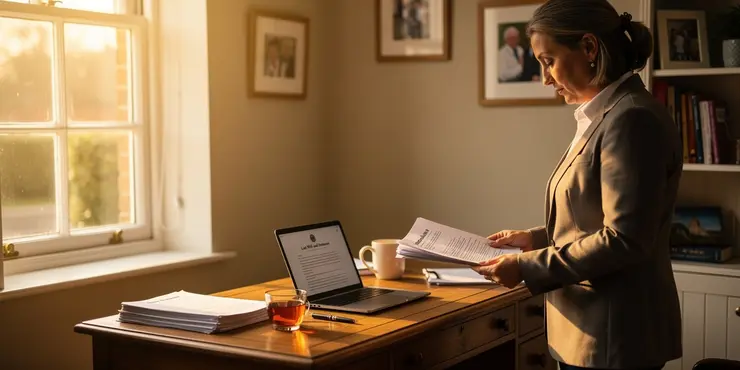
Can the executor use the deceased's assets to pay tax debts?
Relevance: 92%
-
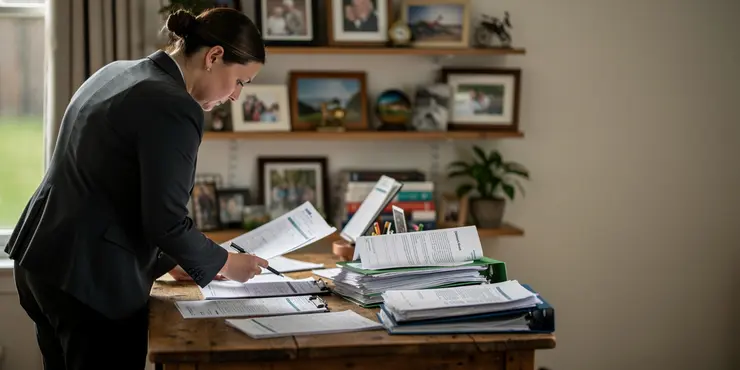
Who is responsible for paying the deceased’s tax debts?
Relevance: 79%
-

Do unpaid tax debts affect Inheritance Tax calculations?
Relevance: 75%
-
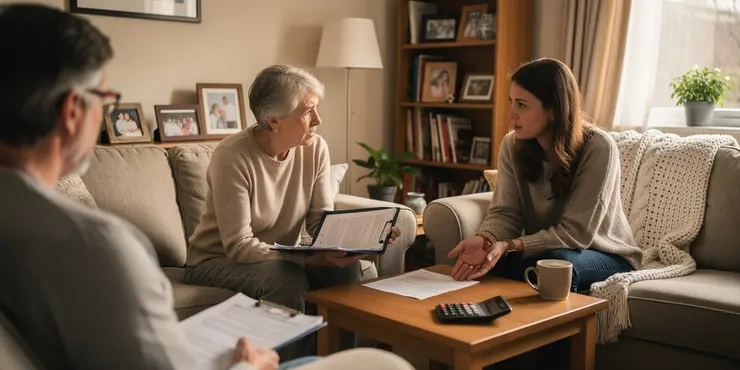
What Happens to Tax Debt After Death? (UK Laws)
Relevance: 75%
-
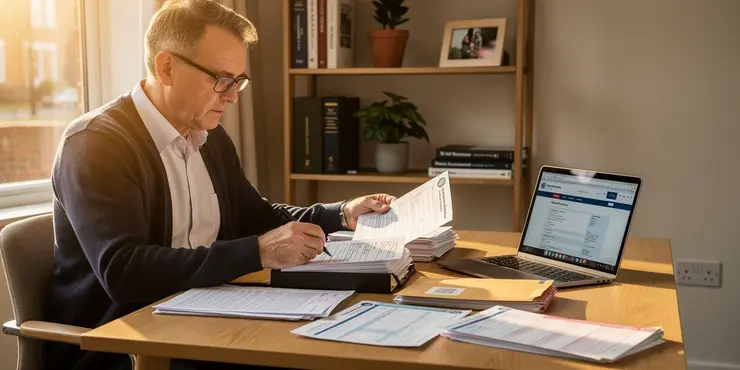
What is the role of an executor in handling tax debts?
Relevance: 73%
-
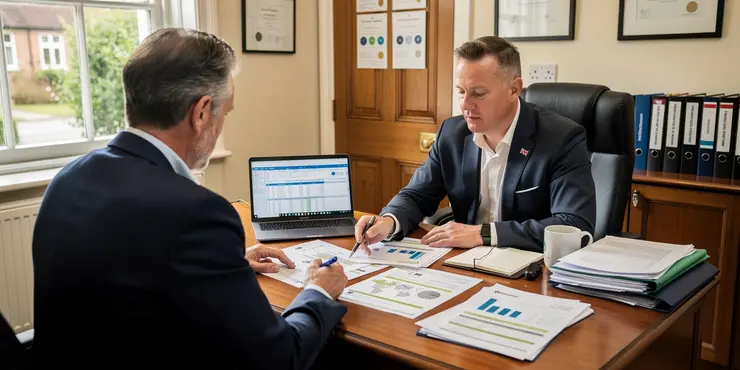
How do I value the estate for Inheritance Tax purposes?
Relevance: 71%
-
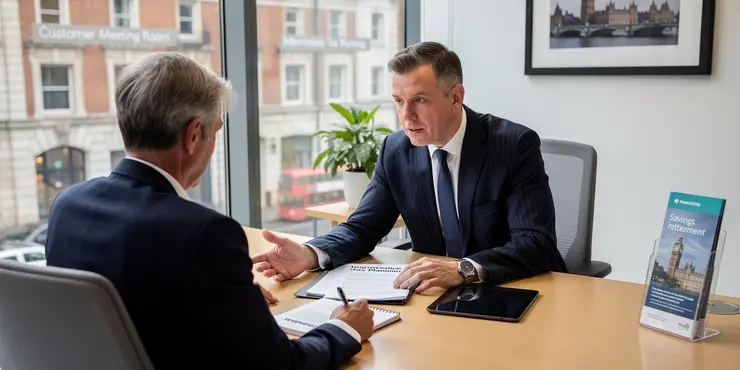
What assets are subject to inheritance tax?
Relevance: 64%
-

Would a wealth tax apply to foreign assets?
Relevance: 63%
-
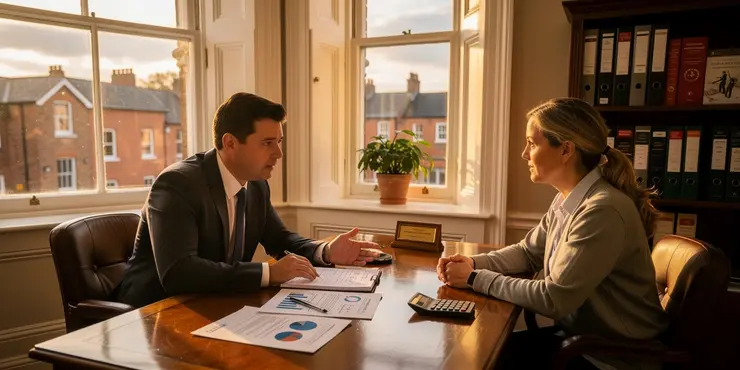
Is there a difference between inheritance tax and estate tax?
Relevance: 63%
-

Is real estate included in wealth tax calculations?
Relevance: 62%
-

What taxes need to be paid from the deceased’s estate?
Relevance: 60%
-
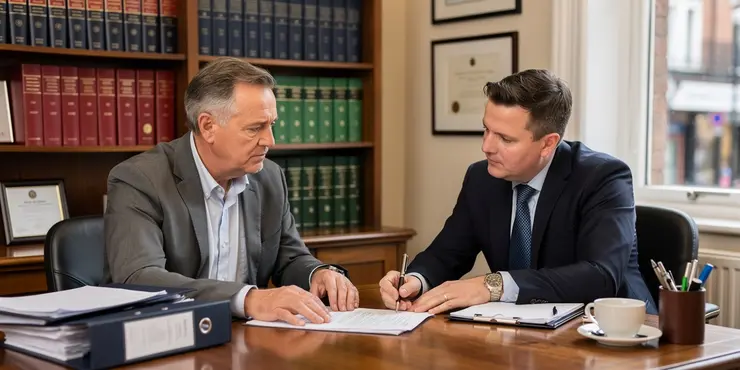
Is there any relief for business assets in Inheritance Tax?
Relevance: 55%
-

Are beneficiaries responsible for the deceased's tax debts?
Relevance: 54%
-

How is inheritance tax calculated?
Relevance: 51%
-
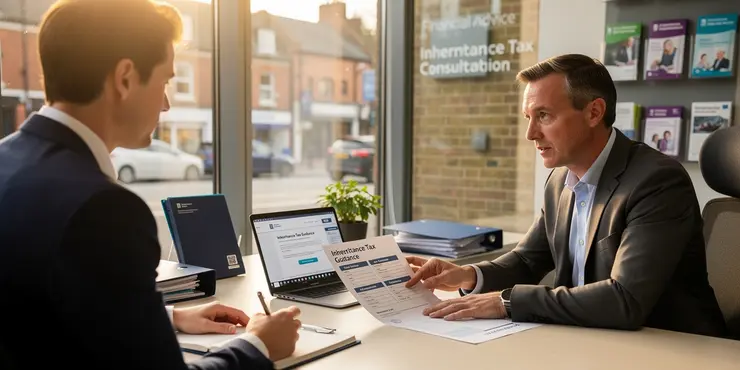
What is the process for paying inheritance tax?
Relevance: 51%
-

How is the Inheritance Tax bill calculated?
Relevance: 48%
-
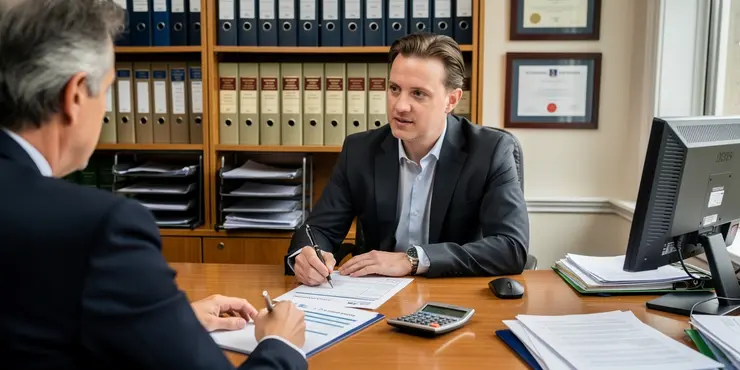
Who is responsible for paying Inheritance Tax?
Relevance: 48%
-
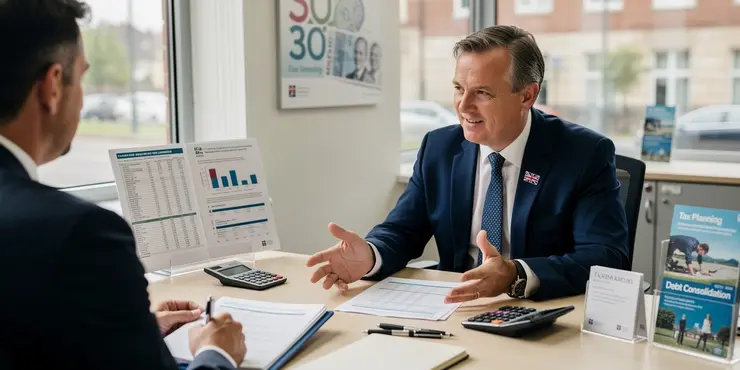
Can I include previous year's tax debt in a new Time to Pay arrangement?
Relevance: 48%
-
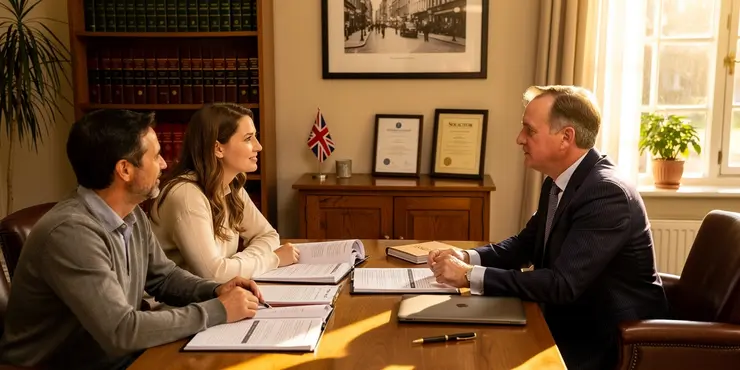
Wills, Probate and Tax Planning in the UK
Relevance: 48%
-

Are there deductions available for inheritance tax?
Relevance: 47%
-
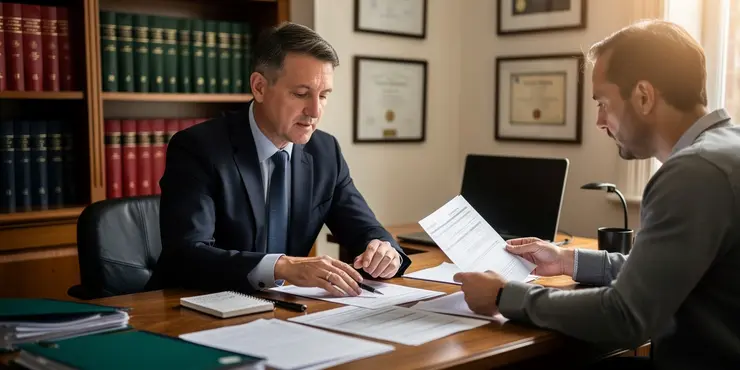
What forms do I need to complete for Inheritance Tax?
Relevance: 46%
-

Can inheritance tax be deferred?
Relevance: 45%
-

TRUSTS EXPLAINED I HOW TO PROTECT FAMILY ASSETS
Relevance: 45%
-

What is inheritance tax in the UK?
Relevance: 45%
-
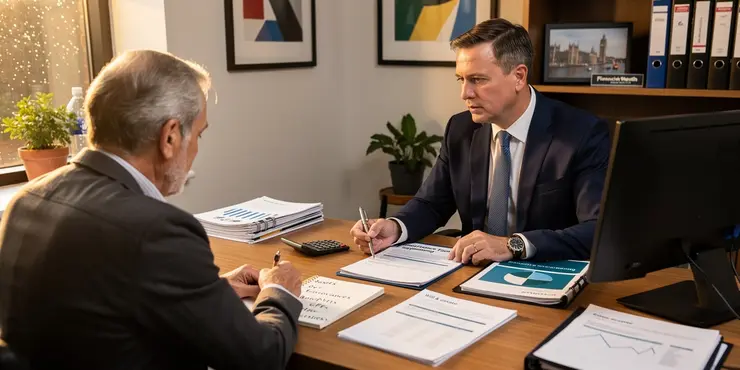
What is Inheritance Tax?
Relevance: 45%
-
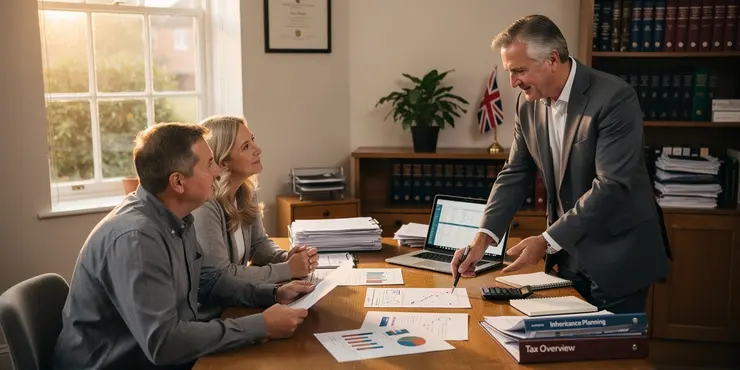
What is Inheritance Tax?
Relevance: 44%
-
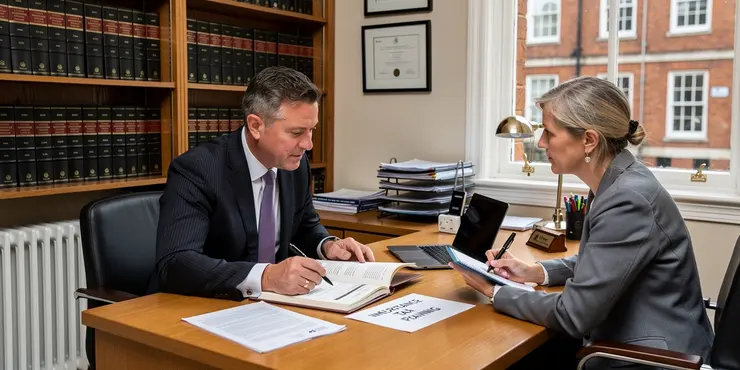
Who pays the inheritance tax?
Relevance: 44%
-

How To Protect Family Assets | Trusts Explained UK
Relevance: 43%
-
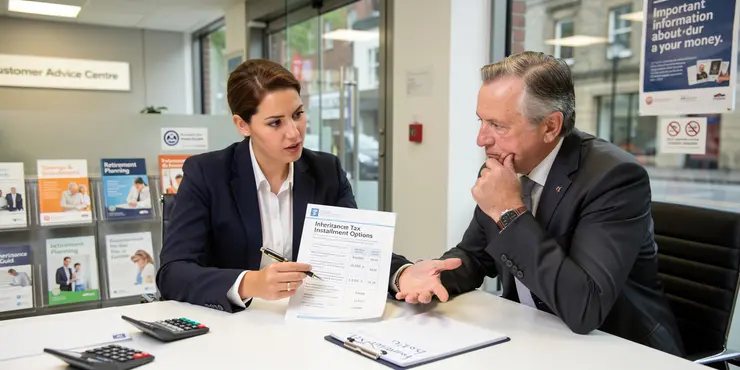
Can Inheritance Tax be paid in installments?
Relevance: 43%
-

How is a wealth tax typically calculated?
Relevance: 43%
-
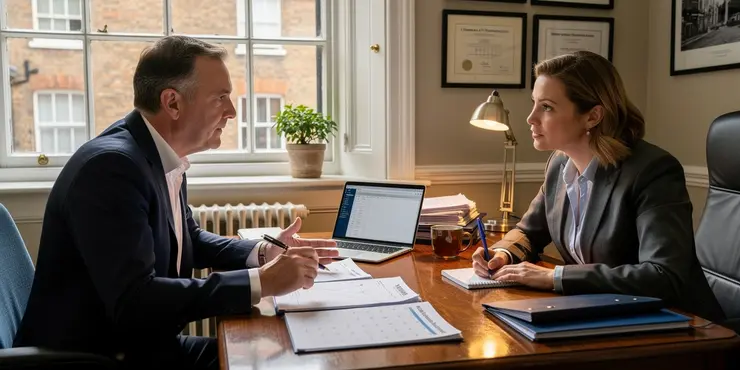
When is inheritance tax due?
Relevance: 42%
-
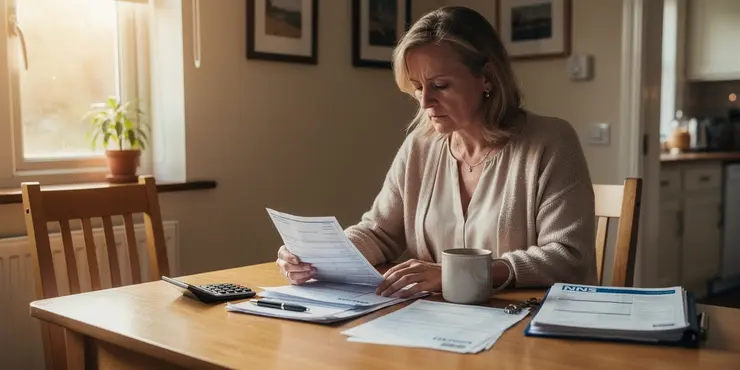
How is Inheritance Tax (IHT) dealt with after death?
Relevance: 42%
-
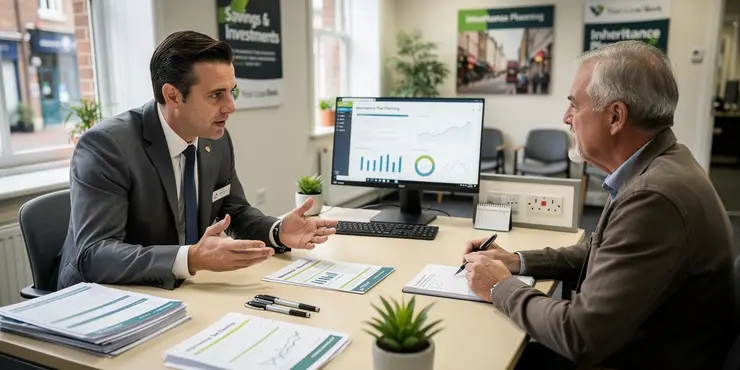
What happens if inheritance tax is not paid?
Relevance: 42%
-
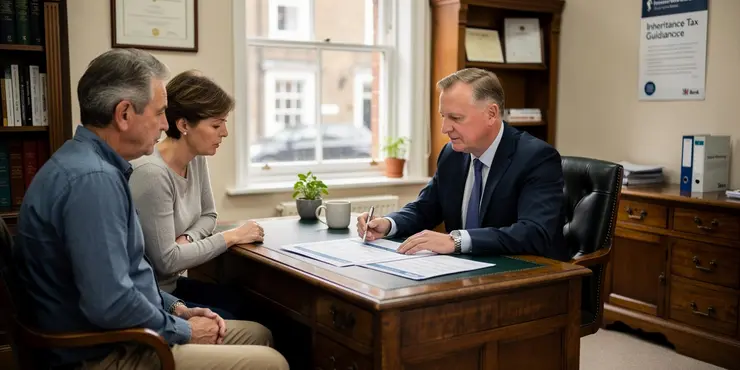
What is inheritance tax?
Relevance: 42%
-
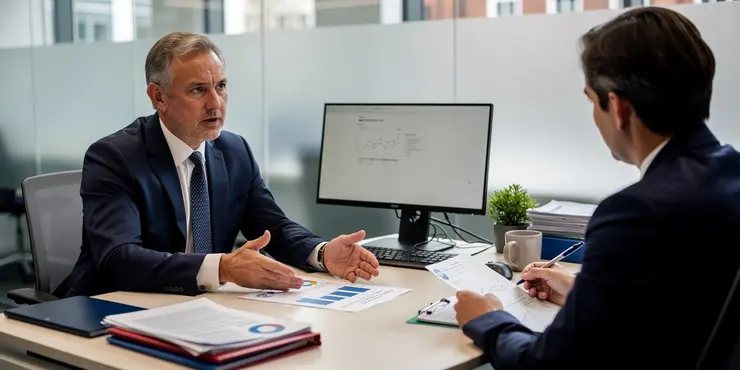
When do I need to pay Inheritance Tax?
Relevance: 42%
-

What is a Wealth Tax?
Relevance: 42%
-

What types of assets are typically subject to a wealth tax?
Relevance: 42%
-
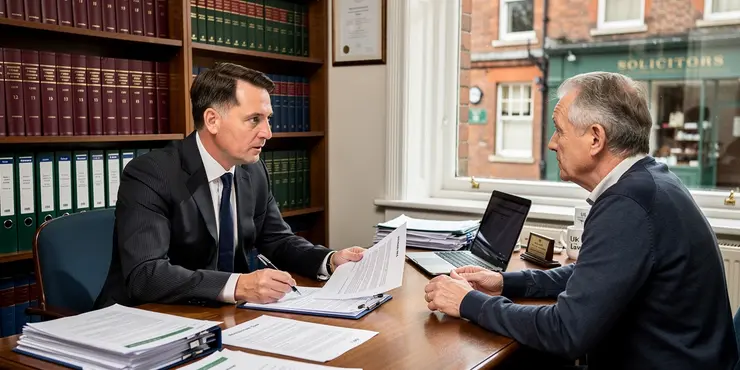
How and when do I pay Inheritance Tax when someone has died?
Relevance: 41%
-
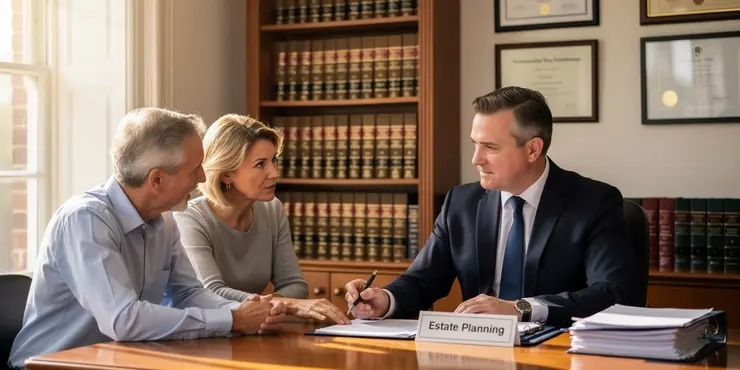
How does inheritance tax affect charitable bequests?
Relevance: 41%
Introduction
In the UK, when an individual passes away, their estate, which includes all their assets, is typically used to settle any outstanding debts. This includes paying any owed taxes before the remaining assets are distributed to beneficiaries. However, situations can arise where the estate does not have enough assets to cover all its tax liabilities. This article explores what happens in such scenarios and the implications for executors and beneficiaries.
Understanding Tax Debts
Tax debts on an estate can arise from various sources such as unpaid income taxes, capital gains tax, and inheritance tax. The estate is required to settle these debts, and the responsibility usually falls on the executor or administrator managing the estate. The process of paying off debts and distributing the estate's assets is known as probate.
Order of Priority
If the estate does not have sufficient funds to pay all debts, including taxes, the debts must be paid in a specific order of priority. Typically, funeral expenses and the costs of administering the estate are paid first. Next are secured debts, such as mortgages. Unsecured debts, which include tax liabilities, are paid from the remaining assets. If there are not enough assets to cover these debts, the estate is considered insolvent.
Dealing with Insolvency
When an estate is insolvent, the executor needs to manage the situation carefully to avoid personal liability. It is advisable to seek legal advice to navigate this complex process. Executors should ensure they follow the proper legal order in paying off debts. Failing to do so can result in the executor being held personally liable for any mishandling of the estate.
Implications for Beneficiaries
If the estate is insolvent, beneficiaries may not receive any inheritance or may receive a reduced share. The executor must inform beneficiaries of the estate’s financial situation. In some cases, beneficiaries might be asked if they wish to contribute funds to settle outstanding debts, although they are not legally obligated to do so.
Steps for Executors
Executors should collect detailed information about all debts and assets, seek professional appraisal if necessary, and maintain transparent communication with creditors. It is also important to file the necessary documentation with HMRC and adhere to deadlines to avoid additional penalties.
Conclusion
An insolvent estate requires careful management to ensure all legal obligations are met. Executors play a crucial role in managing an insolvent estate’s debts and must operate within the legal framework to protect themselves from liability. Seeking professional advice and maintaining clear communication with all parties involved can help navigate the challenges of estate insolvency.
Introduction
When someone in the UK dies, all their things, called their estate, are used to pay off debts. This includes taxes they owe. After this, what's left is given to the people named to receive it. Sometimes, there isn't enough money to pay everything owed. This article explains what happens then.
Understanding Tax Debts
There might be taxes like unpaid income taxes or inheritance tax that need to be paid. The person who looks after the estate is called the executor. They make sure these taxes are paid. Paying debts and giving out what’s left is called probate.
Order of Priority
If there isn't enough money, debts are paid in a special order. First, funeral costs and getting the estate ready are paid. Then come big debts like mortgages. Last are debts without items attached, like taxes. If the estate can't pay everything, it’s called insolvent.
Dealing with Insolvency
If the estate is insolvent, the executor needs to be very careful. They should get legal help. Executors have to pay debts in the right order to avoid trouble. They could be in trouble if they don't follow rules.
Implications for Beneficiaries
If there’s no money, people expecting inheritance might get nothing or less than expected. The executor must tell them about the money situation. Sometimes, people might want to help pay the debts, but they don't have to.
Steps for Executors
Executors should collect all information about debts and things owned. They might need an expert to check the value of items. They should keep talking clearly with people owed money. Forms needed by HMRC should be filled on time to avoid more charges.
Conclusion
When there isn’t enough money, managing the estate is tough. Executors have an important job to do it right and keep out of trouble. They should get advice and talk clearly to everyone involved. This helps manage the estate well.
Frequently Asked Questions
What happens if an estate cannot fully pay its tax debts?
If an estate does not have enough assets to cover all tax debts, it is considered insolvent. The debts are typically paid in a specific order of priority, as determined by state and federal law.
Can beneficiaries be held responsible for unpaid tax debts of an estate?
Generally, beneficiaries are not personally responsible for the estate's tax debts. However, if they receive distributions before debts are paid, they may be required to return funds.
What is the role of an executor in an insolvent estate?
The executor must manage the estate's assets and debts, ensuring that debts are paid according to legal priority and notifying creditors of the insolvency.
How are tax debts prioritized in an insolvent estate?
Typically, administrative expenses, secured debts, and federal debts like taxes are paid first. State laws vary, so the order may differ.
Will the IRS negotiate estate tax debts if the estate is insolvent?
The IRS can offer payment options, such as installment agreements or compromises, but they have strict criteria for these programs.
Can some debts be discharged if the estate is insolvent?
Certain debts may not be enforced if there are no assets to pay them, but tax debts generally remain until assets are available or forgiven per tax authority discretion.
What records should an executor keep for an insolvent estate?
Executors should maintain detailed records of all assets, debts, creditor communications, distributions, and taxes filed and paid.
Can legal proceedings affect the payment of tax debts in an insolvent estate?
Yes, probate and insolvency proceedings can determine how debts are settled and may affect tax payments.
What should an executor do if the estate is insolvent?
Seek legal and tax advice, notify creditors, and manage the estate to maximize asset recovery and meet obligations.
Is insurance available to cover estate tax debts?
Life insurance may be used to cover some estate liabilities, but it depends on policy terms and estate planning.
Are non-probate assets considered in covering estate tax debts?
Non-probate assets like joint accounts may be brought into the estate for debt settlement if insufficient estate assets exist.
How can the executor protect themselves from liability in an insolvent estate?
By following legal protocol, providing transparency, prioritizing debts correctly, and seeking professional guidance.
Can creditors pursue heirs for unpaid estate tax debts?
Generally, creditors cannot pursue heirs personally unless they guaranteed or co-signed the debt.
Does the executor have to notify creditors of an estate's insolvency?
Yes, the executor is legally required to notify creditors about the estate's inability to fully satisfy debts.
What is the effect of insolvency on the distribution to heirs?
Heirs may receive reduced or no inheritance if the estate's debts exceed its assets.
Can the IRS place a lien on estate properties if tax debts are unpaid?
Yes, the IRS can place a lien on estate assets to secure payment of unpaid taxes.
Does insolvency affect the timeline for settling an estate?
Yes, insolvency can extend the estate settlement process due to additional creditor negotiations and legal proceedings.
What happens to estate tax filings in the case of insolvency?
Tax filings are still required, and the executor must file final returns and manage any tax arrears or disputes.
Can joint debts affect the distribution of an insolvent estate?
Yes, joint debts become the responsibility of the surviving co-signers or joint account holders.
Is it necessary to consult a lawyer when dealing with an insolvent estate?
Yes, consulting with a lawyer experienced in estate law is advisable to navigate complex insolvency and tax issues.
What if there is not enough money to pay tax debts?
When someone dies, their money and things are called an estate. If there is not enough money to pay all the taxes, the estate is called insolvent.
The money that is left is used to pay the important debts first. This is decided by rules from the government.
It might be helpful to use simple checklists to see what needs to be done first. Talking to a helper or using a calculator can make this easier.
Do people who get things from an estate have to pay its tax debts?
When someone dies, they leave behind things like money and houses. This is called an estate. People who get these things are called beneficiaries.
Sometimes, the person who died owed taxes. It is important to know if the beneficiaries have to pay these taxes.
Here are some things that can help you understand:
- Read one sentence at a time.
- Use a highlighter for important words.
- Ask someone to explain if it is not clear.
Usually, people who get money or things from someone who has died do not have to worry about paying the person's taxes. But if they get the money or things before all the money problems are fixed, they might have to give it back.
If you find this kind of information confusing, using tools like audio books or having someone read it to you can help. Writing down notes in simple words can make it easier too.
What does an executor do when there is not enough money?
When someone dies and they do not have enough money to pay all their debts, their estate is called "insolvent." The person who helps manage the money and pay the debts is called the "executor."
The executor's job is to try and pay as many debts as possible. They have to follow special rules to decide who gets paid first.
If you have trouble with this, you can ask someone you trust for help. Using a calculator or writing down the steps can also make it easier.
The executor is the person who looks after the things someone leaves behind when they pass away. They have to make sure that any bills or money owed by the person are paid in the right order. They also need to tell the people who are owed money if there isn't enough to pay everything back.
When someone dies and doesn't have enough money to pay all debts, what debts get paid first?
First, we pay for the cost of running things, like office bills.
Next, we pay money we promised to give back, like loans with a house or car as a guarantee.
Then, we pay any money owed to the government, like taxes.
Different places have their own rules, so the order can change.
A helpful tool to keep track of payments is a checklist or using an organizer app.
Can the IRS help if an estate has no money to pay tax debts?
The IRS can help you pay your taxes slowly through payment plans or special deals, but they have very strict rules for these programs.
Can some debts be cleared if there is no money left?
If someone dies and they owe money, but there's no money to pay it back, some debts might not need to be paid.
Here are some steps to understand what happens:
- Look at what money and things the person left behind.
- Make a list of all the debts they owed.
- See if some debts do not have to be paid.
It might help to ask an adult or use a calculator to work out the numbers.
Some debts do not have to be paid if there is no money or property to pay them. But, tax debts usually need to be paid. They can only be forgiven or cancelled if the tax office allows it.
What should an executor write down for a bankrupt estate?
People who manage someone's money and things after they pass away should keep good notes about what they own, what they owe, who they owe money to, and any money they give to others. They should also keep track of any taxes they pay.
Can court cases change how tax debts are paid when someone’s money or estate is not enough?
If a person dies and owes tax, their estate (money and property) might not cover the debt. Court cases can change how these debts are managed. If you're confused or need help, you can use pictures, ask someone to explain, or use reading tools that read text out loud.
Yes, when someone dies and owes money, or if a person or company can't pay their bills, there are special rules for sorting it out. These rules can also change how taxes are paid.
What to do if there is not enough money in the estate?
If the estate does not have enough money to pay everyone:
- Make a list of all the debts and people owed money.
- Talk to a lawyer for help. They can guide you on what to do.
- Pay the most important debts first. The lawyer can tell you which ones these are.
- Tell everyone who is owed money about the problem.
- Keep notes of all actions you take and conversations you have.
- Use a calculator to keep track of the money.
It is okay to ask for help when things get tricky!
Talk to a lawyer and a tax expert. Let people know if any money is owed. Look after the things left behind to get back as much as you can and pay what you need to.
Can you buy insurance to help pay estate taxes?
Life insurance can help pay for things you owe when you pass away. It depends on the rules of the insurance and how you plan for your money and things you own.
Do non-probate assets help pay estate tax debts?
If there is not enough money to pay debts when someone dies, accounts with shared names might be used to help pay what is owed.
How can the person in charge stay safe if the estate has no money?
Here are some tips to help the person in charge:
- Make a list of everything the estate owes.
- Follow the rules to pay off any debts.
- Talk to people who know about money, like a lawyer or accountant.
- Keep records of all money that goes in and out.
- Ask for help if things get too hard.
Here is how to manage debts:
- Follow the law.
- Be honest and open about money.
- Pay the most important debts first.
- Ask an expert for help.
You can use tools like a calculator to help with money. Writing a list can also be useful.
Can People Who Are Owed Money Ask Family Members to Pay Unpaid Estate Taxes?
Usually, if someone owes money and they die, the people who inherit from them do not have to pay that money back, unless they agreed to pay it or signed for it.
Does the person in charge need to tell people who are owed money that there isn't enough money?
An executor is the person in charge when someone passes away. Their job is to manage the person's money and belongings.
If the person who died didn't have enough money to pay what they owe, this is called insolvency.
The executor may have to let the people or businesses that are owed money know about this.
It might help to use simple lists or notes to keep track of who needs to be informed.
The executor must tell people the estate owes money to (creditors) that there is not enough money or assets to pay all the debts.
What happens to family money when there isn't enough to pay debts?
If someone dies and owes money, the money they leave behind might have to be used to pay those debts. If there isn't enough money left over after paying what they owe, the people who were supposed to get money might get less or nothing at all.
Can the IRS take property from an estate if taxes are not paid?
Yes, the IRS can take something from an estate if taxes are not paid.
Can being out of money change how long it takes to sort out someone's things after they die?
Yes, if someone can't pay their debts, it can take longer to sort out their money and belongings after they die. This is because they have to talk to people they owe money and there might be extra legal steps.
What happens to tax forms when someone can't pay their debts?
If someone owes more money than they have, they might not have enough to pay their taxes. This is called insolvency.
If this happens, the tax people might let them fill out special forms to show they can't pay. They need to explain how much they owe and how much they own.
It is a good idea to ask someone for help, like a money advisor. There are also easy apps and websites that can help people understand how to do this.
You still need to do tax forms. The person in charge (called the executor) has to send in the last tax forms and fix any tax problems.
Can shared debts change how an estate with no money is shared out?
Yes, if two people owe money together and one person dies, the person who is still alive has to pay back the money.
Do you need to talk to a lawyer when handling a money problem with someone's belongings after they die?
If a person dies and owes more money than they own, it is called an "insolvent estate." It means there is not enough money to pay back what they owe.
Here are some tips to help you:
- Talk to a lawyer if you need help. They know the rules and can guide you.
- Look for online guides or books that explain what to do in simple steps.
- Ask family or friends if they have been through something similar. They might have good advice.
Yes, it is a good idea to talk to a lawyer who knows about estate law. They can help with tricky money and tax problems.
Useful Links
This website offers general information and is not a substitute for professional advice.
Always seek guidance from qualified professionals.
If you have any medical concerns or need urgent help, contact a healthcare professional or emergency services immediately.
Some of this content was generated with AI assistance. We’ve done our best to keep it accurate, helpful, and human-friendly.
- Ergsy carfully checks the information in the videos we provide here.
- Videos shown by Youtube after a video has completed, have NOT been reviewed by ERGSY.
- To view, click the arrow in centre of video.
- Most of the videos you find here will have subtitles and/or closed captions available.
- You may need to turn these on, and choose your preferred language.
- Go to the video you'd like to watch.
- If closed captions (CC) are available, settings will be visible on the bottom right of the video player.
- To turn on Captions, click settings .
- To turn off Captions, click settings again.
More Items From Ergsy search
-

What if the estate does not have enough assets to pay all tax debts?
Relevance: 100%
-

Can the executor use the deceased's assets to pay tax debts?
Relevance: 92%
-

Who is responsible for paying the deceased’s tax debts?
Relevance: 79%
-

Do unpaid tax debts affect Inheritance Tax calculations?
Relevance: 75%
-

What Happens to Tax Debt After Death? (UK Laws)
Relevance: 75%
-

What is the role of an executor in handling tax debts?
Relevance: 73%
-

How do I value the estate for Inheritance Tax purposes?
Relevance: 71%
-

What assets are subject to inheritance tax?
Relevance: 64%
-

Would a wealth tax apply to foreign assets?
Relevance: 63%
-

Is there a difference between inheritance tax and estate tax?
Relevance: 63%
-

Is real estate included in wealth tax calculations?
Relevance: 62%
-

What taxes need to be paid from the deceased’s estate?
Relevance: 60%
-

Is there any relief for business assets in Inheritance Tax?
Relevance: 55%
-

Are beneficiaries responsible for the deceased's tax debts?
Relevance: 54%
-

How is inheritance tax calculated?
Relevance: 51%
-

What is the process for paying inheritance tax?
Relevance: 51%
-

How is the Inheritance Tax bill calculated?
Relevance: 48%
-

Who is responsible for paying Inheritance Tax?
Relevance: 48%
-

Can I include previous year's tax debt in a new Time to Pay arrangement?
Relevance: 48%
-

Wills, Probate and Tax Planning in the UK
Relevance: 48%
-

Are there deductions available for inheritance tax?
Relevance: 47%
-

What forms do I need to complete for Inheritance Tax?
Relevance: 46%
-

Can inheritance tax be deferred?
Relevance: 45%
-

TRUSTS EXPLAINED I HOW TO PROTECT FAMILY ASSETS
Relevance: 45%
-

What is inheritance tax in the UK?
Relevance: 45%
-

What is Inheritance Tax?
Relevance: 45%
-

What is Inheritance Tax?
Relevance: 44%
-

Who pays the inheritance tax?
Relevance: 44%
-

How To Protect Family Assets | Trusts Explained UK
Relevance: 43%
-

Can Inheritance Tax be paid in installments?
Relevance: 43%
-

How is a wealth tax typically calculated?
Relevance: 43%
-

When is inheritance tax due?
Relevance: 42%
-

How is Inheritance Tax (IHT) dealt with after death?
Relevance: 42%
-

What happens if inheritance tax is not paid?
Relevance: 42%
-

What is inheritance tax?
Relevance: 42%
-

When do I need to pay Inheritance Tax?
Relevance: 42%
-

What is a Wealth Tax?
Relevance: 42%
-

What types of assets are typically subject to a wealth tax?
Relevance: 42%
-

How and when do I pay Inheritance Tax when someone has died?
Relevance: 41%
-

How does inheritance tax affect charitable bequests?
Relevance: 41%


